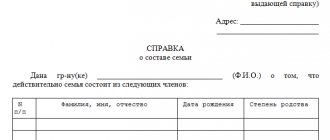Inheritance process
After the death of a relative, in order to receive his inherited property, the heirs must visit a notary office to accept the inheritance. According to Art. 1153 of the Civil Code of the Russian Federation, this is done by sending an application for acceptance of the inheritance or issuing a certificate of right to it.
One of the application options must be submitted to the notary at the place of opening of the inheritance, who, according to Art. 1115 of the Civil Code is the last place of residence of the deceased or the location of his property.
The applicant chooses the method of submission independently: in person, by post or through an authorized representative.
Six months after the death of a citizen, the notary is obliged to issue a certificate of the right to inheritance to all called successors.
It can be issued to each heir separately, for each type of property, or for all heirs together.
At this stage, a notary fee is charged for entering into an inheritance. This, however, is not the only payment that a notary may require.
The article “Registration of inheritance” will tell you more about the registration procedure.
What is the state duty on inheritance in 2021?
For performing notarial acts, the state fee is paid taking into account the following features:
- in cases where it is impossible to perform notarial acts in a notary’s office or the notary travels at the request of the applicant, the amount of the state fee increases by one and a half times;
- if there are several heirs, the state duty is paid by each heir;
- the assessment of the value of the inherited property is made on the day of opening of the inheritance.
The state duty is paid at the place where the legally significant action was performed:
- cash - at the cash desk of any bank. The fact of payment is confirmed by a receipt;
- non-cash form of payment. The fact of payment is confirmed by a payment order stamped by the bank.
Heirs pay a state fee when applying for a certificate of ownership - before the document is issued.
The notary, in connection with the performance of a notarial act, is paid for legal and technical services.
These services include:
- legal analysis of submitted documents;
- consulting on the application of legislation;
- production of documents, copies;
- technical support for document storage;
- other legal and technical services.
The maximum amount of fees for the provision of legal and technical services by notaries is established in each constituent entity of the Russian Federation for the current year.
She was married for 10 years. They lived together in the same apartment until the death of their spouse. Now I have started registering my inheritance. Do I have to pay a state fee for issuing a certificate of ownership of an apartment?
If you document the fact of living together in this apartment before death and living together after death, you are exempt from paying the state fee for issuing the certificate. You can provide a certificate stating that you are registered at the testator's address and testimony of witnesses confirming cohabitation.
Should minor heirs pay state fees?
Heirs who have not reached the age of majority by the day the inheritance is opened are exempt from paying state duty.
My husband and I were divorced, but were able to maintain a good relationship. The eldest son lived with his father for 23 years. My youngest son, 9 years old, is with me. In August, her ex-husband died suddenly. What remained was the apartment in which he lived with his son. Will children pay a state fee to obtain a certificate of inheritance?
Your children will be exempt from paying state fees for issuing a certificate of inheritance. The younger son had not reached the age of majority on the day the inheritance was opened, and the eldest lived with his father on the day of death and continues to live in this apartment after death. You need to provide documents confirming these circumstances.
Mom died. I am the only heiress, I live in another city. There is no will. Will I have to pay state duty for an inheritance?
Regardless of the method of obtaining property, you must pay a state fee for issuing a certificate of inheritance. For close relatives (parents, spouse, children, full brothers and sisters) – 03.% of the value of the property.
To calculate the amount of the state duty, an assessment of the property and confirmation of your relationship with the testator is required.
The mechanism for paying state duty on movable and immovable property and its amount are regulated by Federal Law No. 146 of July 31, 1998. “Tax Code of the Russian Federation” (hereinafter referred to as the Tax Code of the Russian Federation), according to which the amount payable is calculated individually, since it directly depends on the degree of relationship with the deceased and the estimated value of the property. The state duty rate is reviewed annually.
When first contacting a notary, the successor pays the so-called notarial fee for the preparation of primary documentation and opening of the will. According to the Tax Code of the Russian Federation, all notaries must have the same cost of services.
For 2021, article 333.24. The Tax Code of the Russian Federation establishes the following fee for performing notarial acts:
- certificate of will – 100 rubles.;
- opening the envelope and reading out the closed will – 300 rubles.;
- Carrying out an inventory of inherited property (so-called measures to protect the inheritance) – 600 rubles.
The transfer of property to a new owner after the death of the testator is carried out on the basis of a certificate of inheritance rights. It is the main document of title for registering property rights. However, the tax code does not distinguish between inheritance by law (in the event of the death of the testator) and by will.
The state duty rate for registration and issuance of a certificate of inheritance in 2021 in both cases will be:
- For heirs of the first stage (children, husband/wife, parents) – 0.3% of the assessed value of the property, maximum 100 thousand rubles.
- For heirs of the second stage (siblings and half-brothers/sisters, grandparents) – 0.6% of the assessed value of the property, maximum 1 million rubles.
The successor himself has the right to decide which estimated amount to start from when calculating the state duty. For these purposes, not only the market value of the property is used, which is usually somewhat inflated, but also the amount indicated in the inventory or cadastral documents.
If there are several documents indicating the value of the property, the smallest of them is taken into account (Article 333.25 of the Tax Code of the Russian Federation).
Article 333.25 provides for some special cases related to the payment of fees, namely:
- If the notary works “on the road”, i.e. outside the notary's office, the fee increases by 1.5 times.
- If, according to the law, several heirs claim the property, then each of them must pay their share of the state duty in the amount established by law.
The function of a tax agent is assigned to a notary, since according to paragraph 1 of Art. 333.18 of the Tax Code of the Russian Federation, the tax is paid before any notarial acts are performed. You can pay the state duty when entering into an inheritance either in cash or in non-cash form. When paying through a bank cash desk, form No. PD-4sb (tax) is issued. The details are issued by the notary.
The payment confirmation receipt is presented to the notary along with the rest of the documents for inheritance.
Registration of inheritance is carried out through a notary. Therefore, in order to assume their rights, the heirs first need to contact him. If a will was left, the procedure will be handled by the notary who certified it. In the absence of a will, legal successors must contact a notary at the place of registration of the deceased.
The state fee must be paid to the notary before entering into the inheritance, only after which the registration procedure will begin.
The notary provides the following services:
Costs for notary registration
According to Art. 22 Fundamentals of legislation on notaries, all notarial actions are subject to payment in accordance with the requirements of the legislation on taxes and fees, state fees or notarial tariffs.
However, the state fee for registering an inheritance with a notary is far from the only payment. Not only that, such a fee can consist of several amounts depending on the actions performed by the notary. The cost of legal and technical services should also be added to it. The right to pay them is guaranteed to the notary by Art. 23 Fundamentals of legislation on notaries.
Unlike state fees and notary fees, the cost of these services is not regulated by law, and therefore is set by the notary at his own discretion.
Such services may include legal advice, drafting and production of documents, mediation in obtaining the necessary certificates, and the like.
The article “How much does it cost to enter into an inheritance from a notary” will help you find out more about this.
Calculation of the amount of state duty
How the state duty is calculated directly depends on the type of payment, the notarial acts for which the fee is paid, in some cases - on the value of the property, as well as the formula used.
For example, the amount of state duty on the inheritance of close relatives in 2021 will be less than the duty on the inheritance of unrelated persons. Different formulas are used when calculating, so it is advisable to consider each payment separately.
State duty for inheritance
In the legislation there is no such thing as a state duty when entering into an inheritance. By it we mean a set of payments that the heir must make in favor of a notary or other procedural persons and bodies when registering rights to the property of the deceased.
These include a mandatory fee for everyone for the production of a notarized certificate, payment for measures for the protection of inheritance, and a fee in case of exercising one’s inheritance rights through the court. It is noteworthy that the size of the latter will not change both when inheriting by will and by law.
The article “Entering an inheritance by law” will help you learn about the process of realizing inheritance rights.
Fee for certificate of inheritance
The state fee for a certificate of inheritance is one of the mandatory payments. Refusal to pay it will not allow you to receive a document, without which the heir will not be able to formalize the rights to the inherited property.
The amount of payment in this case is determined by paragraphs. 22 clause 1 art. 333.24 of the Tax Code and does not depend on the basis on which the inheritance occurs. Thus, the duty is charged in the amount of:
- 0.3% of the estimated value of inherited things, but not more than 100 thousand rubles, if the successors are spouses, children, parents, and brothers and sisters;
- 0.6% of the estimated value of inherited things, but not more than 1 million rubles for all other legal successors.
The state fee for issuing a certificate is charged to each heir receiving such a document.
According to Art. 333.25 of the Tax Code, the value of the testator’s belongings is assessed at the time of his death. For these purposes, legal successors must submit to the notary a document confirming such value.
At the applicant's choice, this can be the cadastral, inventory or market value of the property, confirmed by documents issued by special bodies or private appraisers.
The official drawing up the certificate does not have the right to demand confirmation of a specific value from the successor; its choice is the exclusive prerogative of the heirs.
The article “Certificate of Right to Inheritance” will tell you more about the issuance of this document.
Fees for inheritance through court
When registering an inheritance, successors often violate the inheritance procedure established by law. If the order is violated significantly, the notary is obliged to refuse to formalize the succession to the heir.
But the opposite situation is also possible, when violations are committed by a notary or circumstances are discovered that prevent the notarization of the inheritance. In this case, the inheritance is formalized through the court.
The reason for this may be:
- missing the statutory deadline for accepting an inheritance;
- actual acceptance of inherited property;
- lack of registration of rights to the property of the testator in actual possession of it;
- a dispute arises between heirs;
- loss of documents giving the right to inheritance;
- contesting a will.
In each case, the applicant will have to pay a state fee for consideration of the case in court. Its amount is determined based on the nature of the claim.
Yes, Art. 333.19 of the Tax Code of the Russian Federation distinguishes between:
- property claims;
- property claims not subject to assessment;
- non-property claims.
Regarding the last two paragraphs. 3 p. 1 art. 333.20 The Tax Code established a state duty of 300 rubles for citizens and 6 thousand rubles for legal entities. For example, the following amounts are paid:
- state duty for a claim for actual acceptance of inheritance;
- on an application for reinstatement of the missed deadline;
- on an application to invalidate a notarial certificate.
As for claims of a property nature, their size, according to paragraphs. 1 clause 1 art. 333.20 of the Tax Code, is determined based on the price of the claim stated in the statement of claim. So, if the claim price:
- 0-20 thousand rubles – 4%, but not less than 400 rubles;
- 20-100 thousand rubles – 800 rubles + 3% of ˃20 thousand rubles;
- 100-200 thousand rubles – 3.2 thousand rubles+2%˃100 thousand rubles;
- 200 thousand - 1 million rubles – 5.2 thousand rubles + 1%˃200 thousand rubles;
- 1 million rubles and above –13.2 thousand rubles+0.5%˃1 million, but not more than 60 thousand rubles.
If there are requirements of a different nature, both state fees are subject to payment.
Fee for recognition of ownership
Recognition of property rights by inheritance is one of the most common requirements of heirs who apply to the court to formalize an inheritance. It can be filed in a variety of cases, in particular if:
- the testator did not complete the process of registering property rights and died;
- the will has an ambiguous interpretation;
- the heir's right to an obligatory share is disputed.
At the same time, in legal practice there is an erroneous stereotype that such claims should be classified as claims of a property nature that are not subject to assessment. In fact, according to the clarifications of the Supreme Court of the Russian Federation, set out in letter No. 5/obshch-1714 dated May 17, 2010, claims of this kind relate to property and are subject to assessment.
Thus, the state duty for recognition of property rights by inheritance depends on the price of the claim, that is, on the value of the property, the right to which is recognized.
The publication “On the recognition of property rights by inheritance” will tell you more about the process itself.
The cost of registering inherited real estate in Rosreestr
But the state fee for the certificate and legal costs do not end with the legal successors’ expenses. For example, when receiving real estate by inheritance, it becomes necessary to re-register it, which requires mandatory re-registration of the transfer of rights.
In this case, a state fee is also charged, the amount of which is determined by paragraphs. 22 clause 1 art. 333.33 Tax Code. This state duty, in particular, is 2 thousand rubles for individuals and 22 thousand rubles for legal entities.
However, there are exceptions regarding:
- rights to a dacha, garden and other plot intended for personal farming, construction, etc. - their registration costs 350 rubles;
- rights to a share in common ownership of agricultural plots – 100 rubles;
- rights to a share in the common property of residents of an apartment building - 200 rubles.
Fee for witnessing a signature by a notary
As we have already indicated, an application to a notary’s office to receive an inheritance can be sent in different ways, at the choice of the applicant. However, if the application is sent to a notary by mail or transmitted through a third party, in accordance with Part 1 of Art. 1153 of the Civil Code, the signature on it is subject to mandatory certification of its authenticity.
For such notarial actions, the notary also collects from the applicant a state fee, the amount of which is determined by paragraphs. 21 clause 1 art. 333.24 Tax Code and amount to 100 rubles.
Fee for inheritance protection
In order to preserve inherited property, as well as protect the rights of successors, legatees and other interested parties, sometimes a notary takes a number of measures to protect and manage the inheritance.
He does this at the request of successors, executors of wills, guardianship authorities, local government bodies and other persons interested in preserving the property of the testator.
These measures include:
- inventory and assessment of property;
- placing funds on your own deposit;
- informing law enforcement officers about the presence of weapons in the estate;
- concluding a trust agreement, and so on.
When a notary performs such actions, he also has the right to collect a state fee, which, according to paragraphs. 23 clause 1 art. 333.24 Tax Code, is 600 rubles.
In addition, if security measures concern the placement of funds or securities of the testator on the notary’s own deposit, in accordance with clause 8 of Art. 22.1 Fundamentals of legislation on notaries, for this a state fee is charged in the amount of 0.5% of the cost, but not less than 1 thousand rubles.
If the specified notarial actions are performed by an official outside the office, the cost of the fee, according to Art. 333.25 NK, increases by 50%.
If there are several heirs, each of them pays the specified fee independently.
Amount of other fees for inheritance
In addition to the above payments, heirs may need to pay other fees, in particular, fees and notary fees for:
| Opening the envelope and reading the closed will | 300 rubles |
| Issuance of a certificate of right to common property of spouses upon the death of one of them | 200 rubles |
| Certifying the accuracy of the document translation | 100 rubles per page |
| Issuance of duplicate documents | 100 rubles |
| Certification of the accuracy of copies and extracts from documents | 10 rubles per page |
| Document storage | 20 rubles per day |
| Submission of documents for state registration of real estate | 1 thousand rubles |
| Other notarial actions | 100 rubles |
State duty upon entering into inheritance
The amount of the notary fee is established by the Tax Code of the Russian Federation (Article 333.24).
In accordance with this legislative document, the final amount of the duty is influenced by two circumstances:
- Presence of family ties between the author of the will and the heir.
- The total value of the property (in this case, an apartment) designated for inheritance.
The first paragraph divides all potential heirs into two categories:
- Close relatives of the testator . According to the laws, these are considered to be the spouse, parents, children, siblings, that is, in legal terms, heirs of the first and second order. For them, the state duty is set at 0.3% of the value of the inherited property. Moreover, the maximum possible amount in such a situation is limited to 100,000 rubles.
- Other persons . These can be both distant relatives of the testator and citizens who are not related to him. For this group, the tariff is equal to 0.6% of the price of the inherited property. In turn, the maximum tariff limit here is the amount of 1 million rubles.
Who evaluates the inherited apartment and how?
When calculating the final amount of state duty, various types of property valuation can be used: according to inventory, cadastral or market value. The potential heir can independently choose the most suitable method, in his opinion. The notary, in turn, does not have the right to impose any specific method of valuing property (for example, at the market price, which is often the highest of the above). To confirm the cost of the apartment, relevant documents are attached - cadastral, technical or appraisal.
Are there any benefits for paying state fees?
Yes, according to Article 333.38 of the Tax Code of the Russian Federation, certain groups of persons have the right not to pay inheritance fees:
If an apartment is inherited by will, the state fee is paid directly to the notary. It is after certification of the fact of payment that the acceptance of the inheritance is considered an accomplished event, and the corresponding certificate acquires legal force.
Where does the considerable money that came into the hands of notaries from the population subsequently go? In fact, these specialists can only count on a certain part of the total tariffs. They are forced to give more than half of the funds to the state in the form of taxes, mandatory tariffs (they are collected by the notary chamber) and other contributions to various extra-budgetary funds.
The video story will reveal 10 gross mistakes of heirs when entering into inheritance
Issues related to the inheritance of property are regulated by Ch. 61-65 Civil Code of the Russian Federation. As for the state duty paid when inheriting an apartment, its payment is regulated by the norms of the Tax Code of the Russian Federation.
There is no inheritance tax in Russia. It is customary to only pay for the services provided by the notary when preparing documents. However, after receiving an official document confirming the right of inheritance, you will have to pay property tax.
Where is the state duty paid?
There is no legislative procedure regulating the place of payment of the state duty. If we talk about payment for notarial actions, then the fee for entering into an inheritance after the death of a relative, as well as other payments in favor of a notary, are most often paid using the details of the notary’s office in banking organizations or payment terminals.
However, the law does not prohibit notaries from accepting payments at the place where notarial acts are performed, so there is a possibility that payment can be made at a notary’s office. In any case, this needs to be clarified with a notary.
As for the payment of fees for inheritance in court, as well as registration of real estate through Rosreestr, it is possible exclusively through bank details, which must be obtained in advance from a specific branch of Rosreestr and the court.
State duty for inheritance by law and by will
How the corporate property tax is calculated and established has a slightly different principle, since it is necessary to constantly take into account the tax period, otherwise, if this is not done, it may entail serious consequences.
Laws on taxation of such organizations have existed since 1992, and since 2005 some changes have been made to the Tax Code. As of 2021, it is known that the tax rate cannot be more than 2.2% for organizations.
Collection of funds in favor of the state does not occur when inheriting the following property objects:
- Shared home with the deceased (with proof of common residence in the last years of the deceased’s life).
- Rewards for authorship, pension payments, deposits in a financial institution.
- Insurance finance.
- Property of people who died while performing their civic duty.
- The property acquired during life is watered down by repressed individuals in the past.
According to the fixed rule in Article 407 of the Tax Code of the Russian Federation, the following are exempt from paying state duty:
- minor recipients of inheritance during the period of opening the case;
- successors suffering from severe mental illness;
- WWII participants;
- awarded the title of Hero of the Soviet Union or the Russian Federation;
- disabled individuals of groups 1 and 2;
- disabled since childhood.
The key basis for exemption from payment is the provision of a title document proving membership in a preferential category of citizens. Such papers include a conclusion from a medical institution, extracts from the medical history, and a certificate of award.
For each individual case, a separate calculation of the fee payable to the state treasury is made.
The final payment amount is influenced by the following factors:
- Degree of relationship with the deceased. Thus, the mother of the deceased will pay a smaller amount than the niece (Pirogov left a testamentary disposition in which he recorded the division of property in equal proportions between his mother and niece. During his lifetime, he acquired a two-room apartment in the city center worth 4 million rubles. Accordingly, the parent will pay 0 .3% of the amount - 12 thousand, and the niece - 0.6% - 24 thousand).
- The cost of the purchased property. If you acquire an apartment worth 1 million or a house worth 3 million as a result of inheritance, the state duty in the first case will be less than in the second.
ATTENTION !!! Current tax laws do not differentiate between inheritance by law or by will. You will have to pay the fee in both cases.
The fee payable cannot be divided among successors. Moreover, each of the recipients of the property pays the established payment in full. Payment of the state duty is mandatory for all heirs, with the exception of individuals who have a preference for the benefit.
Often, successors try to sell property received by inheritance as quickly as possible. In this case, the individual will have to pay income tax on the income received. Its volume is 13% of the total amount of financial proceeds.
At the same time, according to Art. 220 of the Tax Code of the Russian Federation provides a property deduction - the taxable amount is reduced by 1 million. For example, Pugovkin sold an apartment inherited from a deceased aunt for 3 million rubles. After receiving the funds, he must pay personal income tax. A man will pay 13% based on 2 million (since he will take advantage of the preference for property deduction).
The amount of the fee is determined by law and depends on the degree of family relations and the price of the property. The tax rate reduction is provided only for the preferential category of applicants.
Duty amount in 2021
| No. | Fixed rate | Payers | Limit amount |
| 1 | 0,3% | Parents, children, spouses, brothers and sisters | 100,000 rub. |
| 2 | 0,6% | Other assignees | 1,000,000 rub. |
Additional services are paid separately. Their cost is determined for a specific situation.
This includes:
- expert assessment of property;
- notarial services;
- payment of the testator's debts (if any);
- filing an application with the court (for example, establishing a legally significant fact);
- lawyer services (drawing up a claim, representing interests in court);
- registration of property after receiving a certificate.
If the testator did not leave an administrative document, then the inheritance occurs in the order of priority determined by law. Heirs of the same line are entitled to equal shares.
An exception is made for persons entering into an inheritance as a representative. For example, if a deceased heir leaves 2 children, then his share is divided between them in equal parts.
The amount of the duty does not depend on the type of inherited property. It is established depending on the value of the objects and the presence/absence of family ties between the recipient and the testator.
However, the amount of payment for notary services directly depends on the type of property. The cost of the certificate varies depending on the presence/absence of real estate as part of the estate.
A certificate of property rights is issued without paying a fee:
- heirs who are relatives of the testator who died during the performance of his official duty;
- persons who inherited insurance payments (personal or property insurance), wages, royalties or bank deposits.
To use preferential rights, you must provide supporting documents.
State duty benefits
The above fees and notary fees are determined in a general manner and are subject to payment in this amount by almost all subjects of inheritance. However, the legislation defines a list of preferential categories of persons.
In particular, disabled people of groups I and II pay only 50% of the amount of state fees and notary fees when applying to a notary, and when filing an application in court, according to Art. 333.36 of the Tax Code are completely exempt from paying duties.
By the way, similar exemptions from paying fees are provided for notaries.
Who is completely freed
Those who are exempt from paying state duty upon entering into an inheritance are listed in Art. 333.38 NK:
- state bodies and local governments;
- public organizations of disabled people;
- persons who apply for a certificate of inheritance if they inherit: real estate in which they lived together with the deceased testator and continue to live there;
- for relatives who died in the performance of official duties, civic duty or from political repression;
- bank deposits, copyrights and royalties, pensions.
State duty on inheritance: size and calculation, payment rules
In addition to paying the state fee when entering into an inheritance, the heir bears certain types of expenses (for example, for issuing a certificate, assessing the subject of inheritance, and so on). One of the main payments, in addition to the duty, is payment for the services of a notary, since without his support, registration of ownership of the testator’s things can only be done through the court.
A notary carries out transactions to formalize inheritance according to law and according to a will. If there are no legal disputes over property, persons claiming the property of the deceased must contact a notary office to open an inheritance case.
Registration of inheritance legal relations most often occurs at the place of last residence (registration) of the deceased. If we are talking about entering into inheritance rights under a will, you need to contact the specialist who drew up this document.
This distribution of places of appeal for heirs is due to the fact that the notary, who was directly involved in the preparation of the testamentary document, has copies of the will itself, as well as other documents relevant to the case.
The work of notary employees includes the following powers:
- carrying out the opening of the hereditary mass;
- providing information to persons applying for an inheritance about the list of documents necessary for entering into an inheritance, as well as for obtaining a certificate of receipt;
- transferring a form for writing an inheritance application;
- advising clients on the procedure for registering and receiving an inheritance by law or will;
- providing information on the amount of state duty for the inheritance of an apartment and other property;
- checking the will and other documents submitted by the testator and his heirs subsequently;
- registration of a hereditary estate;
- generation of a certificate of the right to receive an inheritance, which is transferred to clients.
When advising on the amount and procedure for paying the state fee for entering into inheritance rights, the notary does not accept these funds.
The state fee for receiving an inheritance is paid regardless of what type of inheritance takes place: by law or by will.
Payment of the state duty for inheritance, according to the Russian Tax Code, is a mandatory payment that is transferred to the federal budget. This type of payment is made in case of receiving various types of notary services.
The state duty on inheritance is considered a means of ensuring payment for specific legal services provided by government agencies. Making a payment is a one-time transaction.
Entry into inheritance (payment of state duty) is carried out before the documents for the property are completed. The applicant is obliged to pay the required amount and submit a receipt confirming the transaction to the notary along with other necessary documents. This is also enshrined in Article 333 of the Russian Tax Code.
If the transfer of small items can be carried out by the testator personally before his death, then in order to inherit a piece of real estate it is necessary to evaluate its value. Without such an assessment, it is not possible to calculate the correct amount of duty.
An example of calculating the amount of duty can be the assessment of an apartment. For example, an apartment was valued by a specialist at two million rubles. Accordingly, the amount of state duty on inheritance for a close relative will be calculated as follows:
- 2 million * 0.3% = 6 thousand rubles.
- For a distant relative or other heir under a will, this amount will accordingly be twice as large.
- Also, the assessment of the calculation made will be reflected in the amount that will need to be paid to the notary, since such actions are also paid as a percentage of the total amount.
The amount and procedure for paying the state duty for restoration of inheritance is the same as for timely filing of an application for accession to inheritance rights. According to Article 1154 of the Russian Civil Code, a citizen must enter into the right of inheritance within three years after the death of the testator. If this deadline is missed, it can be restored in one of two ways:
- By contacting those heirs who have already entered into the rights of inheritance of the property of the deceased in order to re-issue a certificate of ownership in relation to the part of the inheritance assigned to the applicant by a notary.
- By filing a claim for forced inheritance rights. In this case, the heir also bears all legal costs associated with filing a claim and paying state fees. In addition, the plaintiff must prove that he missed the deadline for a valid reason. It is necessary to go to court at the last place of residence (registration) of the testator.
All issues regarding the payment of state duty for receiving property by inheritance and the amount of state duty are regulated by Art. 333.24 Tax Code of the Russian Federation.
In particular, in the process of entering into an inheritance, the notary must carry out a number of preliminary actions; each service has its own tariff:
- the fee for reading a will is 300 rubles;
- to confirm the authenticity of signatures, the notary’s office will ask for 100 rubles;
- for acceptance and/or certification of a hidden will you will have to pay 100 rubles;
- for the safety of inherited property, which is ensured by a notary – 600 rubles.
The amount of payment for notary services consists of several components.
These include:
- state duty for drawing up a document confirming the authority to inherit the estate;
- payment for legal and technical services (hereinafter referred to as UPTH).
In addition, the successors will need to pay a deed that reflects the value of the property passing from the deceased. Other unplanned expenses may arise.
How much it costs to inherit under a will for an apartment in 2021 is also determined depending on the degree of relationship between the deceased and the one who takes the property into his own ownership.
This factor affects the amount of state duty:
In order for everything to go well at the notary’s office, you should take with you the necessary list of documents for the apartment and personal ones. This will avoid further visits to this institution.
Among the main documentation, one can note a testamentary form, if available, and all passports of future heirs. If representatives are present, then a notarized power of attorney is needed. It is also necessary to stock up on a document that will confirm the value of the property that will be inherited. In this case, the amount of the state duty can be calculated quickly, and you will not spend any effort or time on this procedure.
The cost of notary services when registering an inheritance in 2021 provides for the availability of concessions for certain groups of citizens.
These include:
- persons who are related to the deceased citizen and lived with him in the same apartment at the time of death. The main condition is that this living space be part of the inheritance mass;
- citizens subjected to political repression;
- children and family members of the deceased who have mental illnesses;
- WWII veterans;
- relatives of those who died while on duty.
If a citizen belongs to the 1st or 2nd category of disabled people, when registering an inheritance for an apartment, he will need to pay half the amount.
As in any other matter, there are some benefits for certain categories of citizens. There are a total of 6 options for people for whom such a financial retreat is provided.
These include:
- Disabled people of certain groups who have the necessary certificate from a medical institution. The benefits are half of the amount.
- Heirs who, at the time of death, live with the deceased in a house or apartment. In addition, they continue to live there even after receiving the papers. The benefit is equal to 100 percent if property or part of it is inherited.
- If a person died while performing state or public duties, then all heirs receive a benefit of 100%.
- If money in the bank is inherited, the benefit is also 100%.
- If there are children who have not reached 18 years of age, then they have the right to receive a 100% benefit.
- Incapacitated citizens for whom there is a regime of guardianship and guardianship receive benefits in full - 100%.
The notary will not always know whether you have benefits or not. If there are any, then it is better to warn him in advance, and then you will be able to fully carry out the procedure without any deviations. Benefits are always provided only personally and cannot be transferred to third parties. If you suddenly have any questions, you can contact an experienced lawyer for help. He will provide all the necessary information and will be able to help clarify any questions. After all, it is always better to turn to a professional who will help without any problems.
When talking about how much a notary charges for his services, you need to take into account the provisions of Article 333.25 of the Tax Code of the Russian Federation. This norm states that when calculating the state duty, the market or cadastral, inventory price is taken into account.
Assessment activities are carried out by one or more experts. For example, when determining the market price, a commission of several specialists is needed. How much to pay in this case depends on the region in which the assessment is carried out and where the citizen applied.
The maximum cost in the country is 50,000 rubles. To find out the cadastral price, you will need to order an extract from the Unified State Register of Real Estate. This service is free of charge.
Inventory valuation is similar to market valuation. You can request information by contacting the BTI. You need to visit this organization at the place where the deceased is registered.
When is the state duty paid?
In each case, the state fee, regardless of what actions it is paid for, must be paid before they are performed. Ignoring this rule will become an obstacle to taking the necessary actions. For example, a notarial act is considered completed by law only after the state fee has been paid for it.
If we are talking about judicial review, the court will leave the claim without progress until payment of the state fee (except for cases of deferment of payment).
As for Rosreestr, the lack of information about the payment of state duty is grounds for returning submitted documents without consideration.







